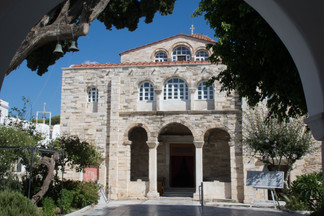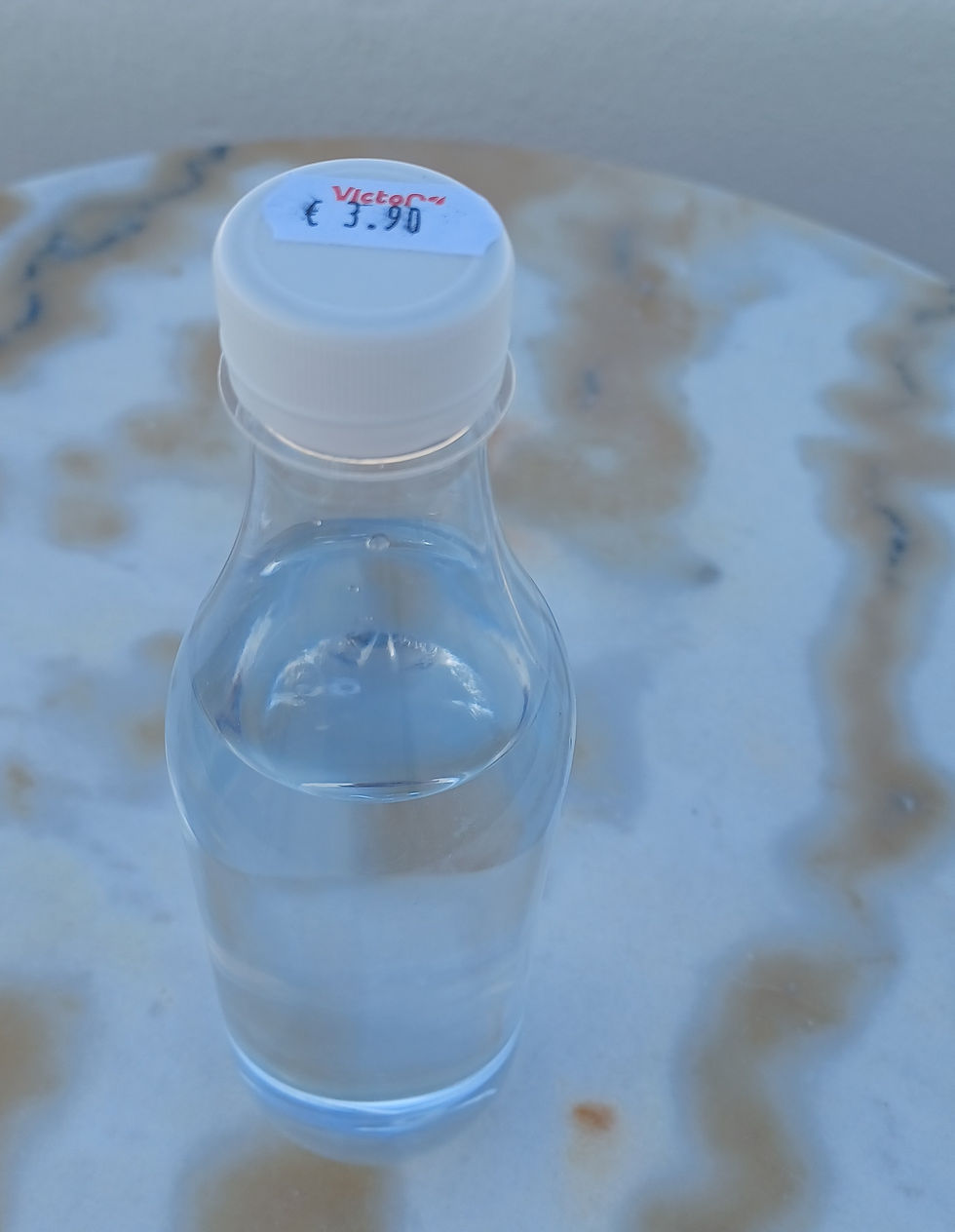Lefkes, the most beautiful village in the Cylades
- halkidikiskipper
- Sep 7, 2022
- 4 min read
Sorry, it's probably not, but I'll come to that. First I promised a bit about the history of Paros, which like all Greek islands starts with mythology. Allegedly King Minos lived on Paros for a while where he produced four offspring with the nymph Paria, Eurimedontas, Chrisis, Nifalionas and Philolaos. I looked for a picture of the nymph Paria to see what had turned King Minos's head but couldn't find one and then realised there was little point looking as she's a myth. The only other point of fame in mythology that I could find that relates to Paros was that on his was to accomplishing one of his 12 labours, Hercules, the greatest of Greek heroes stopped in Paros, which to be honest doesn't sound like that big a deal. As with mythology, the real life history of Paros is somewhat over shadowed by it's neighbour, Naxos, but nonetheless it has a rich history dating back to 3,000 BC and like Naxos has been annexed by a succession of people and empires from the ancient Arcadians through to the Ottomans before becoming part of the newly formed Greek nation under the Treaty of Constantinople in 1832. That's Paros in a paragraph, just the big stuff I could find on Google.
I mentioned in the last blog we planned to hire a car to see more of the island, which we did on Monday, this time for 45 Euro's. It was, very unusually, not a Panda, but a Toyota. Of course it had seen better days and did have the customary squeaking drivers door. It also had a sticky steering wheel, which although nasty (I think it was just old rather than some evil residue left by a previous occupant) did make the wheel easy to grip. And a big bonus, for two cars in a row we've had working air conditioning.
So what's Paros like? Of course full of beautiful places, which I'm in danger of getting blasé about, but which I shouldn't because any one of them in their own rights is worth coming to Greece to see. In general Paros is smaller than Naxos and less mountainous so easier to get around. We spent some time mooching around the second town, Naousa which is beautiful but, like Mykonos, is in danger of becoming owned by the rich and famous. From Naousa we drove towards the South East, heading for Piso Livahdi, a small fishing port we tried to get in by yacht but failed because there was nowhere to park. On the way we stopped off at a village called Prodromos which is a sleepy, un-commercialised, very beautiful, and very Greek. Then it was on to a long lunch by the harbour in Piso Lavahdi, which is lovely little place that we liked a lot and would like to return too.
On the way back to Parikia (did I mention that's the name of the main port where we're staying?) we stopped off at Lefkes in the centre of the island which a local guide book (possibly somewhat biased) says is the most beautiful village in the Aegean. Like Prodromos is has yet to be tarnished by mass commercialisation and it is beautiful. But the most beautiful in the Aegean, sorry, we don't think so.
Here's some piccies of our day out, and also of Parikia, where we're staying, including a couple of the Bizantine church in the town centre, one of the oldest in Greece dating back to the 4th century AD. I haven't singled out pictures of Lefkes because I think everywhere we went on Paros was equally beautiful. As I say it would be so easy to get blasé about the beautiful places we've seen on Paros, because like Naxos, Paros is so worth spending time on.
I'll leave you with news of how we're doing with talking Greek. Our Greek must be coming on, albeit from a very low base, as we're now able to complete an entire transaction in Greek which is usually well received. Here's an example (although there are very few).
Vaughan: Γειά σας, τι κάνεις (Hello, how's it going?, pronounced Yassas, Ti Kanis?)
Taverna / Ouzeria Owner: Καλα εσυ (Good, you?, pronounced Kala, Esy?)
Vaughan: Καλα (Good, pronounced Kala)
Vaughan: θα ήθελα (I would like, pronounced tha íthela, although this is optional)
Still Vaughan: μισό λίτρο ροζ κρασί (Half litre of rose wine, pronounced misó lítro roze krasí) Και μια μεγάλη μπύρα Και νερό (and a big beer and water, pronounced mia megáli býra kai neró) παρακαλώ (please, pronounced parakaló)
Taverna / Ouzeria Owner, almost always in English: Draft? Still or sparkling?
Of course we know a bit more, like συγνώμη (sygnómi), sorry, we say that alot, ευχαριστώ, thank you (difficult at first to get your British chops around, most easily pronounced for beginners as 'a ferrets toe', which does work). Rather confusingly the response the thank you is please (parakaló) which also means 'you're welcome'. If we get stuck πολύ καλά (Poly Kala, very good) often works.
Greek is hard though and a poor memory doesn't help. I tried to have a conversation about how windy it was πολύ αέρα (very windy, Poly Aera) but thought windy was ζεστό (Zesto) which in fact is hot. This resulted in confusion at first shortly followed by derision, nonetheless I will keep trying.
More soon,
Yamass
PS
Couldn't help but show you this picture of the sunset from our apartment balcony, even with the power lines, still a pretty good view.





































Comments